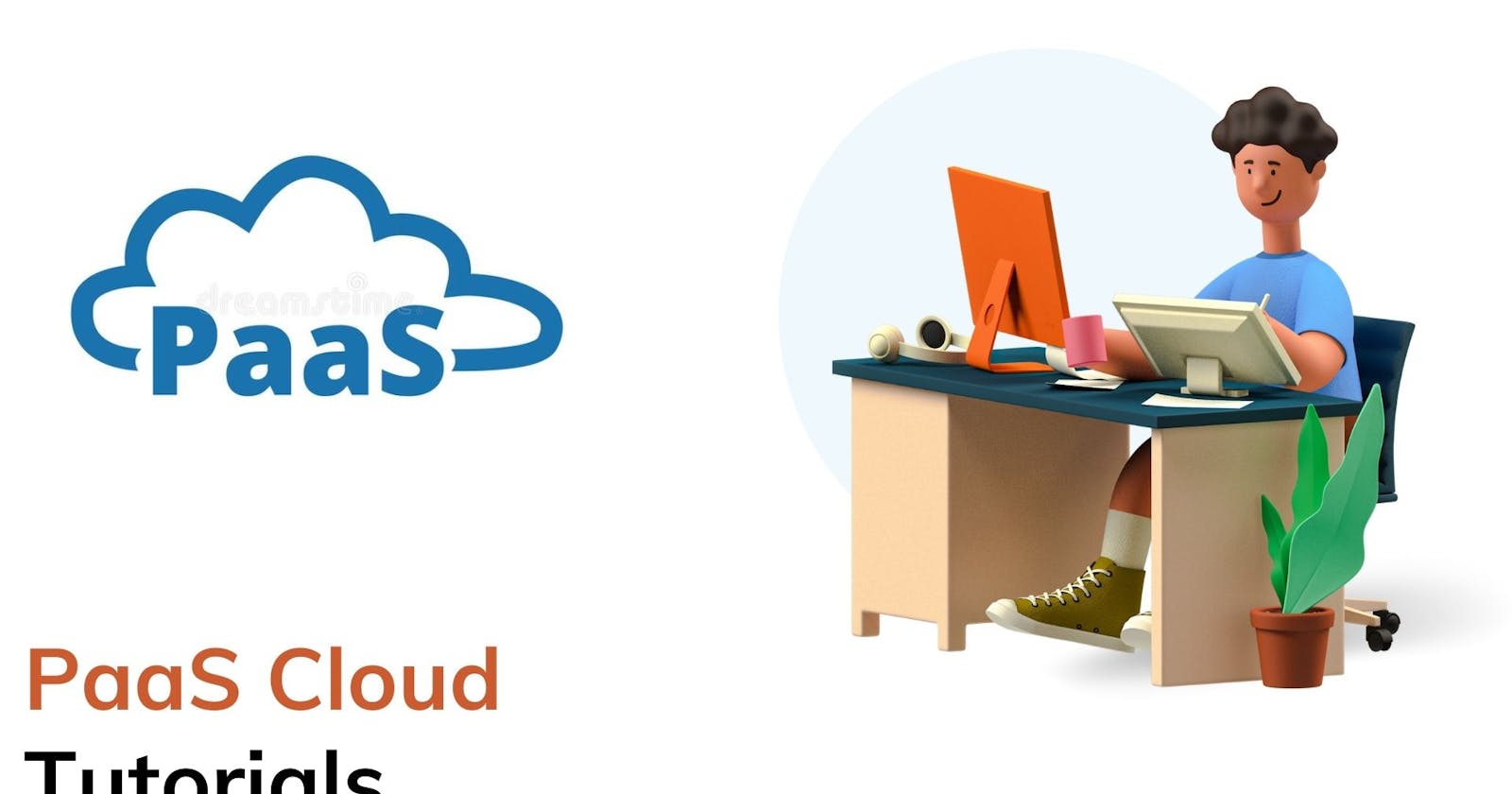In this article, you are going to know about the best free PaaS tools for cloud developers. Most of you already heard of cloud computing which is the most popular, and current buzz in the industry. Cloud computing has different options and ways of computation that leads to offering different types of computation like IaaS, PaaS, SaaS, and FaaS (Serverless).
What is PaaS:
It is a cloud computing approach that confers all the necessary infrastructure, hardware, and software implements that are required in building an application. Third forces provide those app development tools. Also, PaaS platforms are less complicated and budget-friendly compared to the on-premises app development models. Rather than code everything from the ground up, PaaS providers often have pre-built blocks that developers can just plug and play to build better apps quickly. The scalability of the Cloud also means that there isn’t much need for self-provisioning – and all of this at lower prices.
Advantages of PaaS:
- Reduces Cost
- Highly Scalable
- Quick Development
- Multiple Platform Support
Let us dive and find name and brief discripation:
1. Red Hat OpenShift:
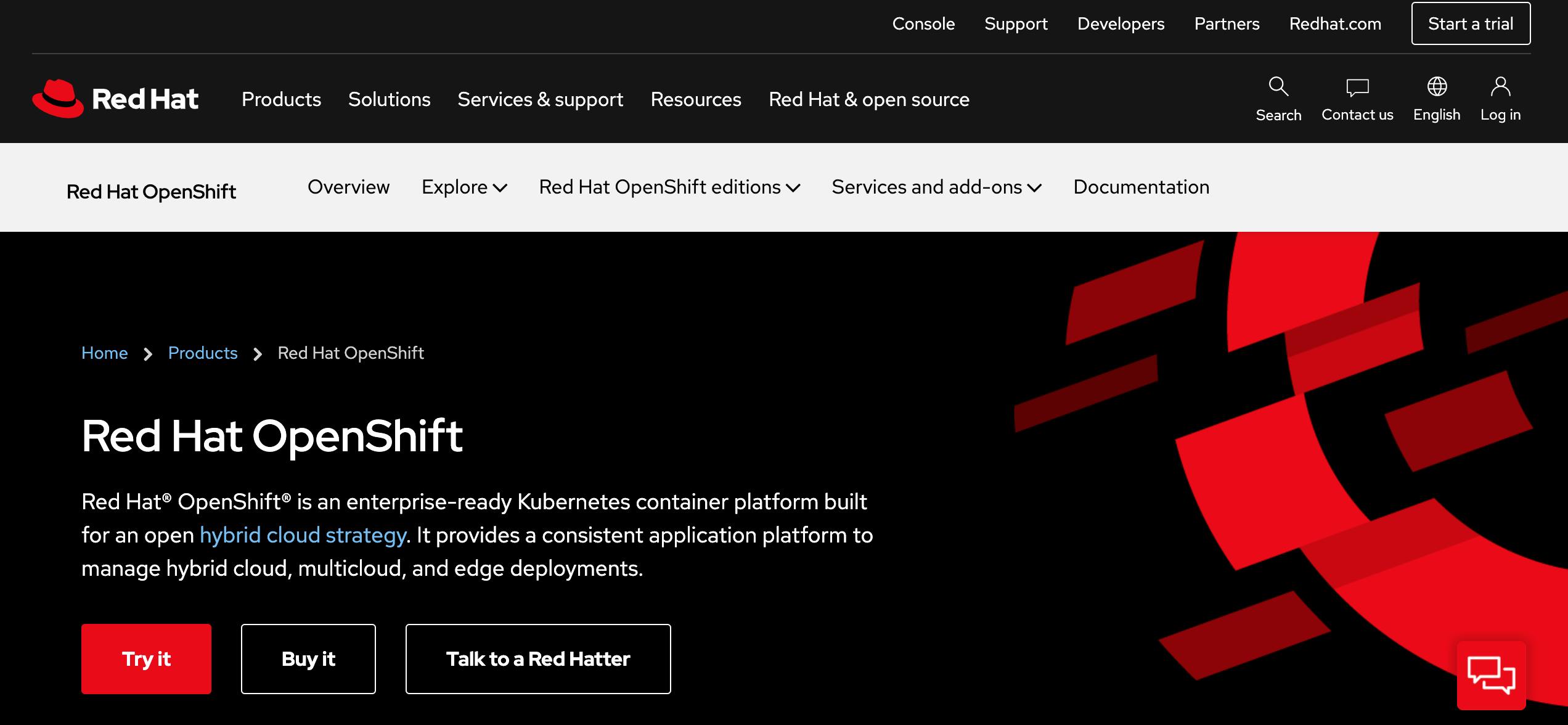
Red Hat OpenShift is an enterprise-ready Kubernetes container platform built for an open hybrid cloud strategy. It provides a consistent application platform to manage hybrid cloud, multi-cloud, and edge deployments. It also has extensive API support so you aren’t limited only to what the platform has to offer. Coming from Red Hat, OpenShift has also been known to be incredibly secure. There are multiple safeguards built into the environment which will step in should users try to perform unexpected actions.
2. Cloud Foundry:
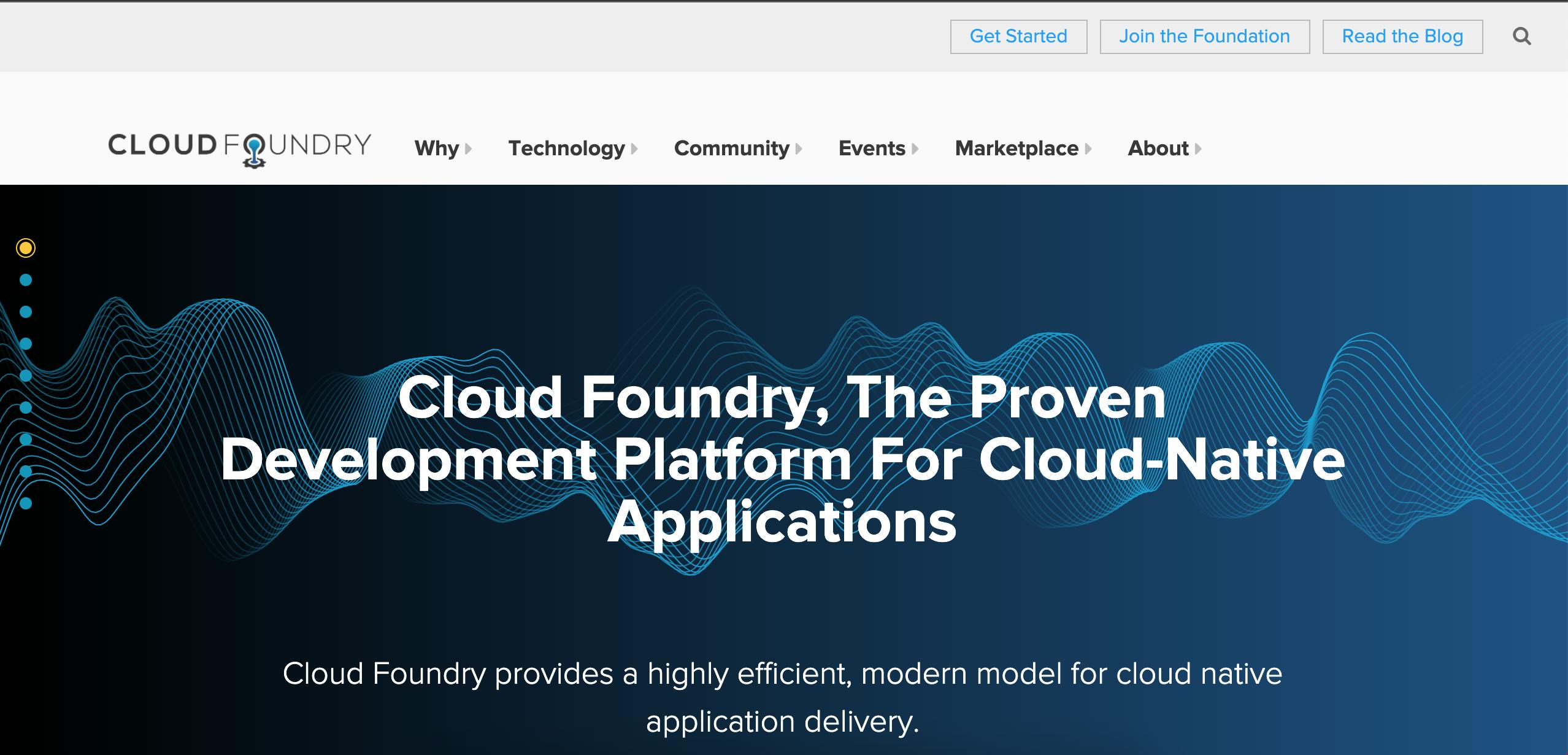
CF is a platform used to deploy next-generation apps. CF is a cloud-native and open source technology that can rapidly deliver experiences to end-users. Cloud Foundry (CF) is the open-sourced distribution of the Cloud Foundry platform. It’s slightly enhanced for this purpose, making it a little more user-friendly and includes more features. CF can be deployed on IaaS platforms such as vSphere.
If you want to deploy your code with complete authority, fast speed, and remarkable productivity, then Cloud Foundry could be your preferred choice.
Like many PaaS deployments, it can be used for rapid application deployment and maintenance. It’s able to streamline app updates as well. A strong part of its appeal of it lies in automation and ease of use across almost any Cloud foundation.
3. Dokku:
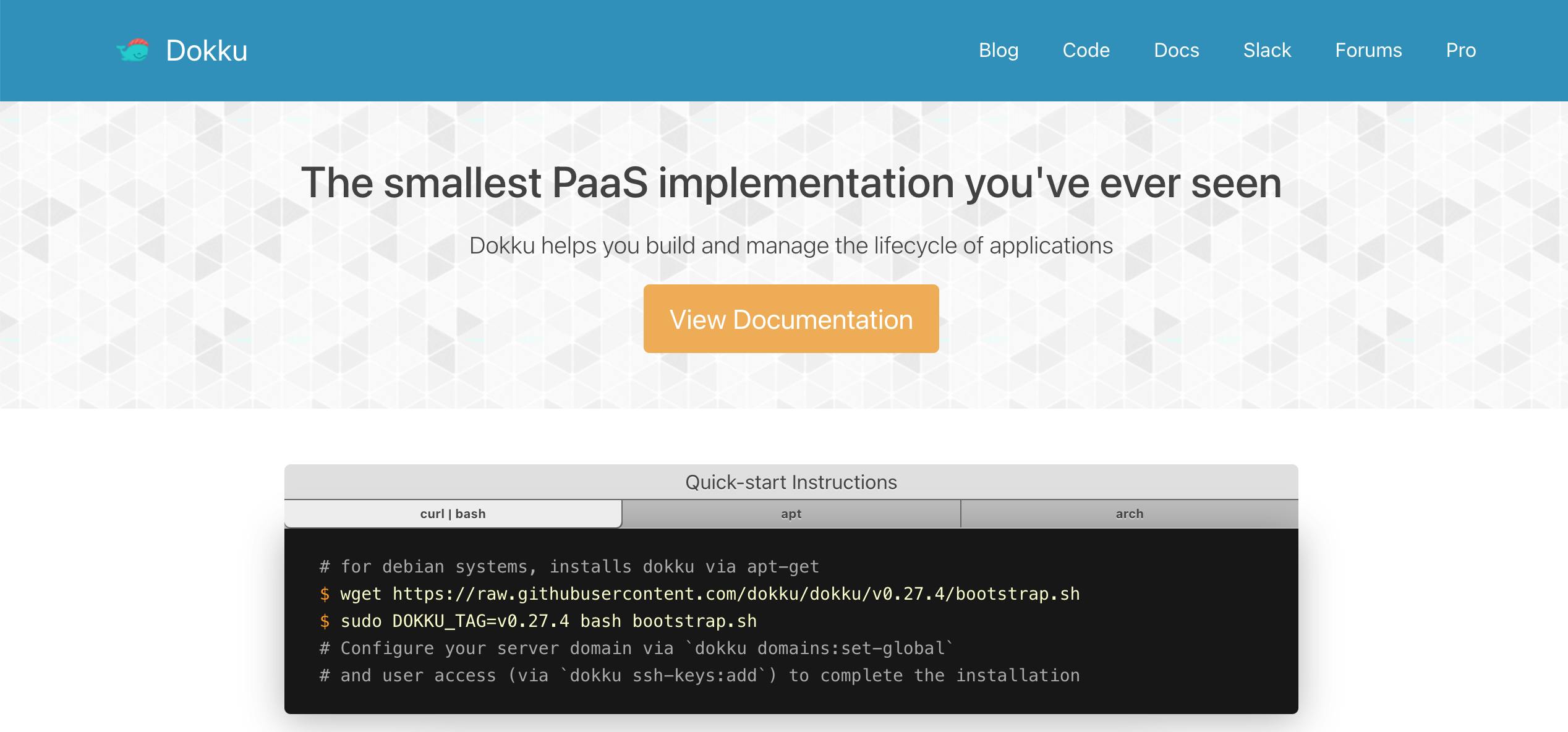 The smallest PaaS implementation you've ever seen. Dokku – is a PaaS example that isn’t quite as capable as the big players like AWS. What it lacks for in-depth, however, it makes up for in cost – Dokku is open source and completely free.
The smallest PaaS implementation you've ever seen. Dokku – is a PaaS example that isn’t quite as capable as the big players like AWS. What it lacks for in-depth, however, it makes up for in cost – Dokku is open source and completely free.
Based on container technology from Docker, this minute PaaS essentially lets you deploy on any infrastructure. The serious advantage of this is that there is a much lower chance of vendor lock-in so you’ll be able to take your business model in any direction you want.
4. Heroku:
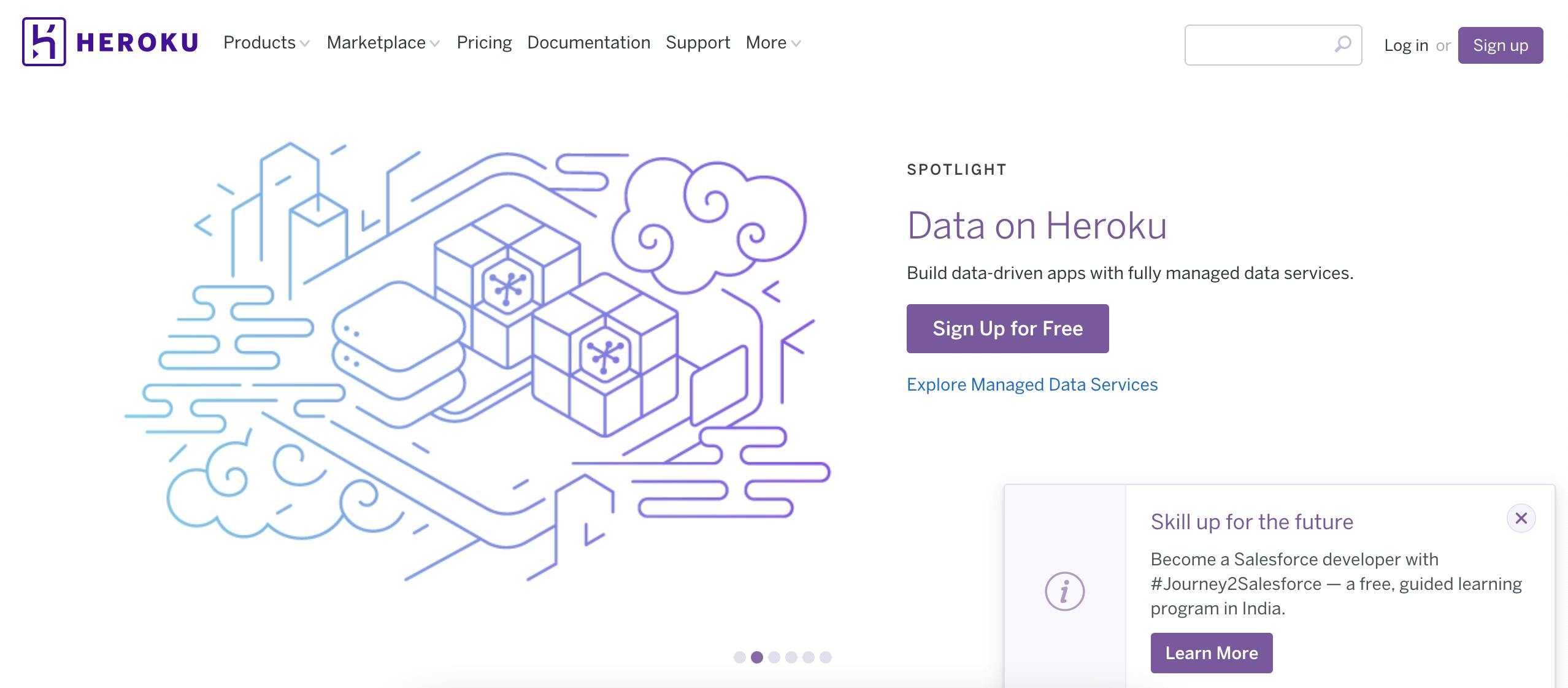 Heroku is an excellent free cloud PaaS platform that was created in 2007 to back Ruby. Notwithstanding, this free PaaS platform extended its services, and now, it is supporting a variety of languages, including PHP, Java, NodeJS, Python, and much more.
Heroku is an excellent free cloud PaaS platform that was created in 2007 to back Ruby. Notwithstanding, this free PaaS platform extended its services, and now, it is supporting a variety of languages, including PHP, Java, NodeJS, Python, and much more.
Heroku now belongs to Salesforce and is an example of PaaS based on the managed container concept. As with many PaaS environments, it is highly self-contained and integrates data services as well as a complete ecosystem of its own.
Because of its app-centricity, Heroku has gained a reputation as less of an enterprise solution. Instead, it has gained a following among the hobbyist and production development crowd. It also helps that Heroku is pretty user-friendly, allowing it to offer a more streamlined experience.
5. Engine Yard:
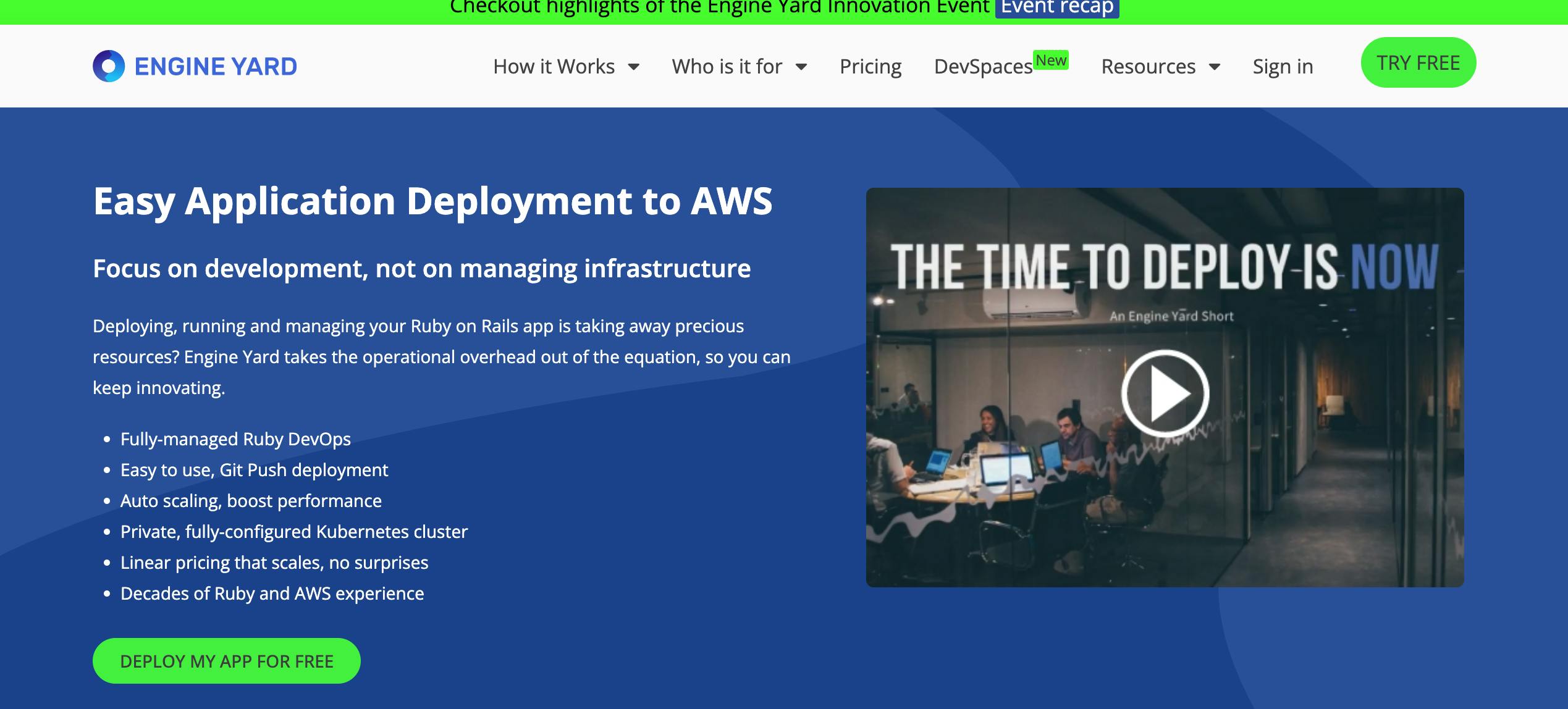
Focus on development, not on managing infrastructure. Deploying, running, and managing your Ruby on Rails app is taking away precious resources? Engine Yard takes the operational overhead out of the equation, so you can keep innovating. It is basically a California-based Platform as a Service company that is successfully backing around 12,000+ applications. Though it supports distinct languages but its services for Ruby on Rails, NodeJS and PHP are tremendous. Like Heroku, it is also free to start using its services under the ‘Start a Free Trial’ signup tab that is available on the right top corner of its official website.
Conclusion:
After reading this article, you can across the 5 different PaaS platform, there are other PaaS platforms which is available as a Service on most popular public cloud providers such as GCP, AWS, Azure, IBM, Oracle, and Salesforce. Mostly choose options based on business and operation needs.
More such articles:
https://www.youtube.com/channel/UCiTaHm1AYqMS4F4L9zyO7qA
==========================**=========================
If this article adds any value for you then please clap and comment.
Let’s connect on Stackoverflow, LinkedIn, & Twitter.

